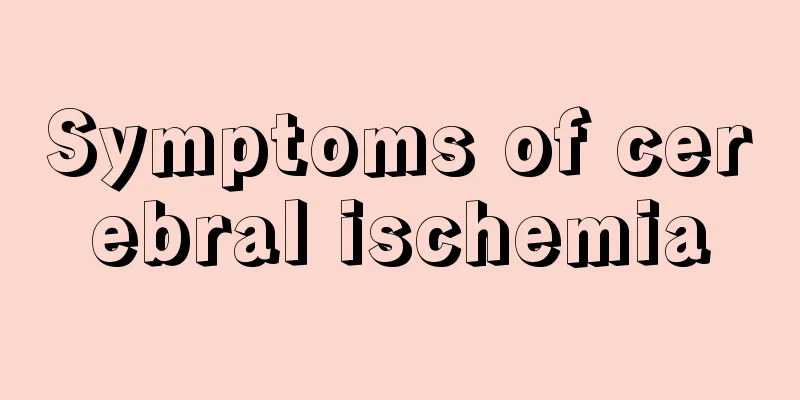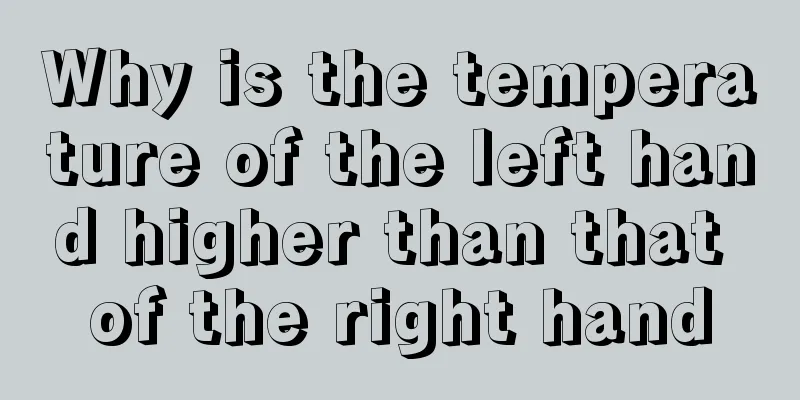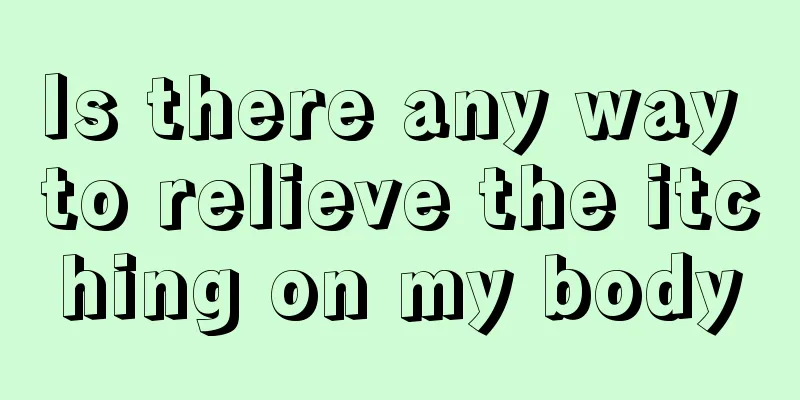Symptoms of cerebral ischemia

|
When the human brain is deprived of blood, people will obviously feel dizzy, just like when we squat on the ground for a long time and suddenly stand up, we will feel dizzy. This phenomenon is also called cerebral ischemia. Cerebral ischemia is a very obvious symptom of cerebral ischemia, and patients with cerebral ischemia may also experience nausea and vomiting. So what are the symptoms of cerebral ischemia? 1. Blood supply to the brain Each artery of the brain has its own blood supply area, which is mainly divided into the anterior circulation (internal carotid artery system) that supplies the anterior 3/5 of the cerebral hemisphere and the posterior circulation (vertebral basilar artery system) that supplies the posterior 2/5 of the cerebral hemisphere, cerebellum, and brainstem. Cerebral blood flow is also affected by many factors, such as blood pressure and cerebral vascular resistance. When a person's blood pressure is too low and exceeds the range of automatic regulation of perfusion pressure by the brain's blood vessels, or when the main blood supply vessels to the brain are narrowed, such as when atherosclerotic plaques or aortic dissections occur, blood supply obstruction will occur. 2. Common symptoms of cerebral ischemia The neck vessels are common areas of atherosclerotic plaque lesions. When anterior circulation ischemia occurs, transient blackening of one eye, paresthesias of one side of the face or limbs, or hemiplegic weakness may occur. Some patients may suffer from aphasia because the language function area of the dominant hemisphere is affected. When the posterior circulation system is ischemic, a feeling of dizziness or vertigo, unsteady gait, choking when drinking water, and dysarthria may occur. When persistent blood supply obstruction occurs, the above symptoms are difficult to relieve on their own and may progress to stroke. When these symptoms appear, you should go to the hospital immediately. Poor blood flow to the internal carotid artery and vertebral artery can easily cause dizziness, and severe cases can cause coma. If it is caused by atherosclerotic plaques, it is easy to have transient dizziness. If it occurs when you wake up at night, it is not necessarily night sweats. Night sweats are usually discovered by others, and the patient stops sweating when waking up. If it is night sweats, Chinese medicine says it is a fever syndrome, while Western medicine does not treat it if it does not affect normal life. Specific treatment: insufficient blood supply to the brain, symptomatic treatment according to the cause. If it is night sweats, Chinese medicine says it is a tonic, and you can ask a professional Chinese medicine doctor for specific medicine. In Western medicine, if it does not affect your normal life and work, no treatment is needed. |
<<: Can I still have sex after I get pregnant?
>>: Manifestations of brain stimulation
Recommend
What to do if removable dentures become loose
Problems with teeth will cause us to be unable to...
What are the characteristics of liver cancer patients' symptoms? Check out several characteristics of liver cancer patients' symptoms
Liver cancer symptoms: pain in the liver area The...
What are the clinical manifestations of cerebellar herniation
I believe that for people who have never had brai...
What are the effects and functions of vitamin C
Vitamin C is a vitamin that everyone is familiar ...
What internal organs are on the left side of the human body
Except for those who study and are proficient in ...
Dietary recipe for nourishing the ovaries after ovarian cancer surgery
Ovarian cancer is a malignant tumor that is extre...
What absorbs formaldehyde most effectively
Modern medicine shows that formaldehyde is the ro...
The three major dangers of endometrial cancer
Correctly understanding the hazards of chocolate ...
What kind of underwear is good for breast enlargement
The expansion of the chest is the most detrimenta...
Characteristics of Traditional Chinese Medicine in Treating Skin Cancer
Clinical practice has shown that high-dose radiot...
Pay attention to various examinations for thyroid cancer
There are many diseases around us every day that ...
What is the banana rice vinegar diet?
Banana is a fruit and rice vinegar is a type of v...
What to do if your face is too small? How to make it bigger effectively
If a person's face is not too small and canno...
Should I take vitamin C on an empty stomach or after a meal?
The lack of any substance in the body will be har...
My upper lip suddenly became swollen and hard
Everyone knows that getting angry can cause many ...









